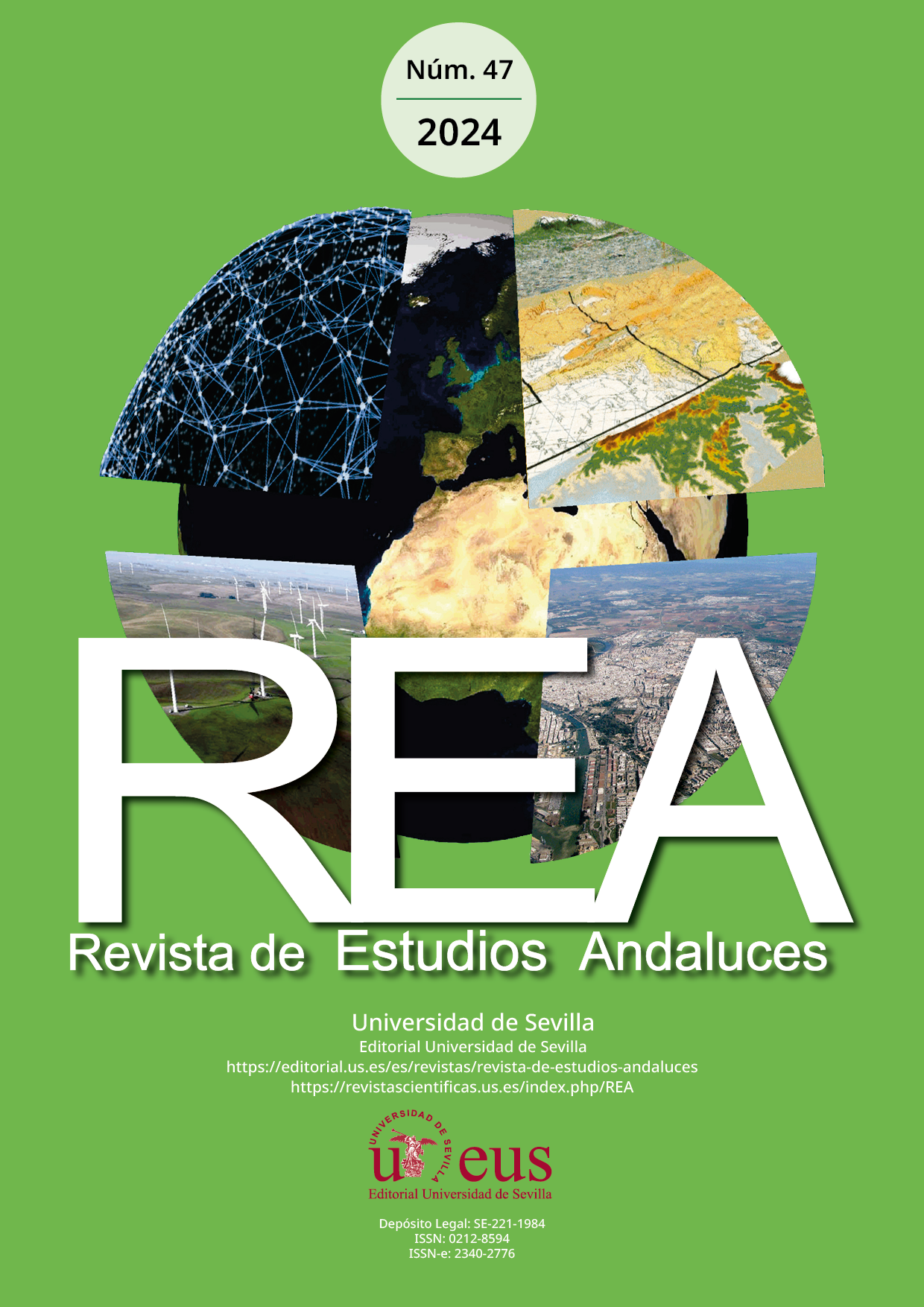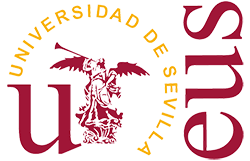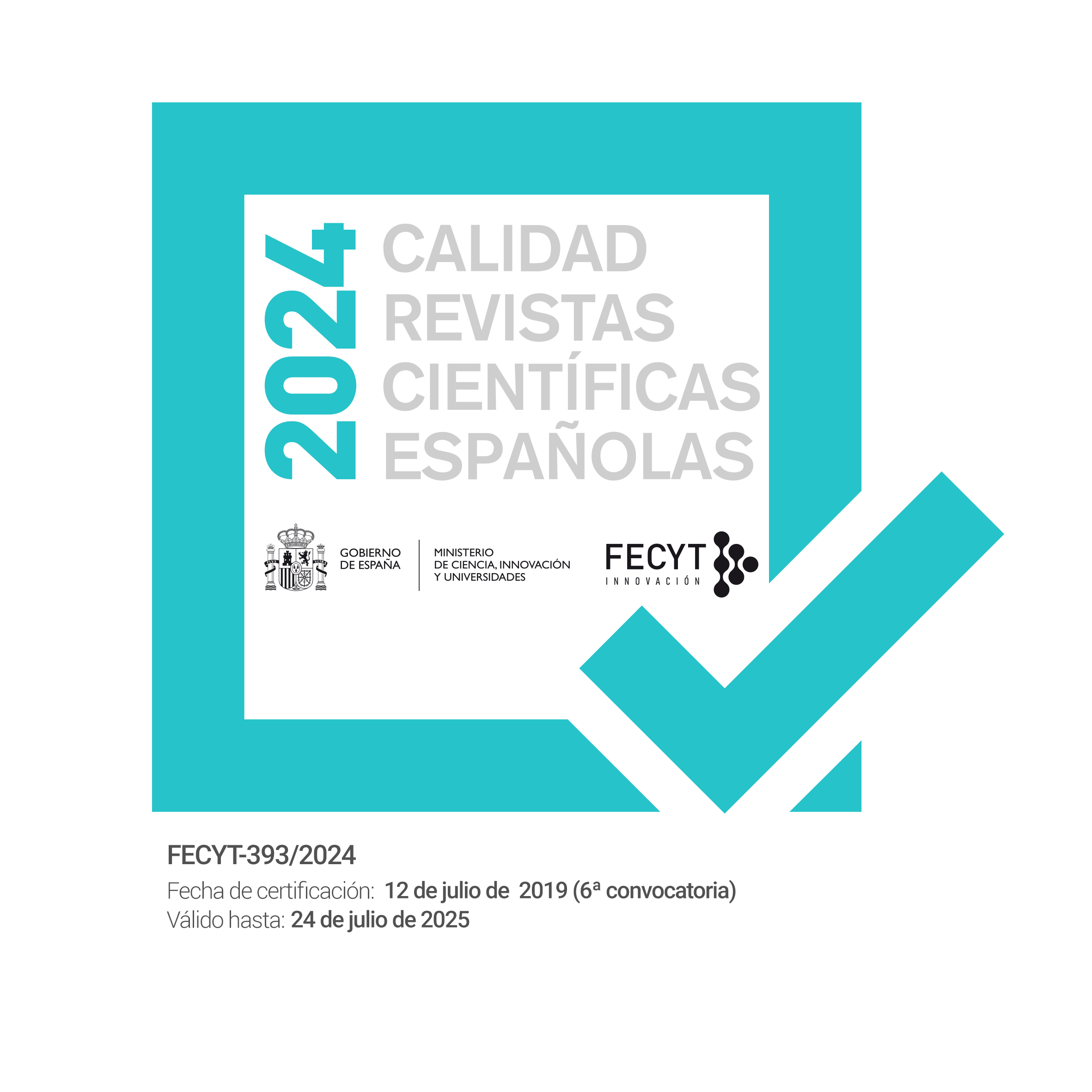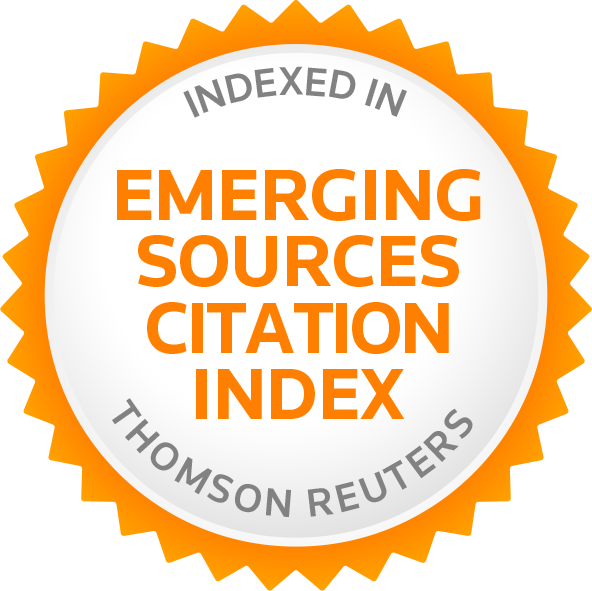Does the colonial past influence the model of tourism development? The case of Ehden (Lebanon)
DOI:
https://doi.org/10.12795/rea.2024.i47.09Palabras clave:
Legado turístico del colonialismo, Turismo sostenible, Participación turística, Recursos endógenos, LíbanoResumen
La presente investigación estudia si el modelo de desarrollo turístico de Ehden (Líbano), es sostenible y equilibrado o, si por el contrario, responde al patrón de insostenibilidad de su pasado colonial. Para ello, se han realizado algunas entrevistas a agentes locales, encuestas a residentes y a turistas que han sido analizadas utilizando técnicas de estadística descriptiva y datos cruzados. Los resultados muestran que los agentes locales quieren promover un modelo de desarrollo turístico integral en Ehden basado en los recursos territoriales que involucre a la población local. La población está dispuesta, en su mayoría, a involucrarse en el modelo de desarrollo turístico de la localidad y, los turistas, apuestan por actividades diversificadas centradas en el patrimonio natural y cultural de Ehden y valoran los recursos exprofeso de la localidad. Sin embargo, se ha detectado que se trata de una demanda de alto nivel adquisitivo que se aloja en hoteles o alojamientos rurales de alta calidad y se concentra en los meses de verano, lo que denota una fuerte estacionalización e insostenibilidad del turismo. Se concluye que, si bien el pasado colonial está presente en el territorio, actualmente hay un gran interés de todos los agentes que intervienen en el turismo para promover un modelo turístico integral que podría ayudar a impulsar la diversificación económica.
Descargas
Citas
Aguirre Bertel, A.M., Arroyo Oviedo, L.P., & Navarro Mesa, C.I. (2018). Turismo alternativo como estrategia de desarrollo local en el municipio de Chalan–Sucre. Económicas Cuc, 39(1). https://doi.org/10.17981/econcuc.39.1.2018.08
Alaoui, Y., & Abba, R. (2019). The R(Evolution) of Territorial Marketing: Towards an Identity Marketing. Journal of Marketing Research and Case Studies, 944163. https://doi.org/10.5171/2019.944163
Alisa, F., & Ridho, Z. (2020). Sustainable cultural tourism development: A strategic for revenue generation in local communities. https://assets.pubpub.org/73pjhgxv/21582062367058.pdf
Andriatis, K. (2002). Scale of hospitality firms and local economic development—evidence from Crete. Tourism Management, 23(4), 333-341.
Andriotis, K. (2018). Degrowth in tourism: Conceptual, theoretical and philosophical issues.
Aslan, A. (2013). Tourism development and economic growth in the Mediterranean countries: Evidence from panel Granger causality tests. Current issues in Tourism, 17(4), 363-372. https://doi.org/10.1080/13683500.2013.768607
Bec, A., McLennan, C.L., & Moyle, B.D. (2015). Community resilience to long-term tourism decline and rejuvenation: A literature review and conceptual model. Current Issues in Tourism, 19(5), 431-457. https://doi.org/10.1080/13683500.2015.1083538
Bessière, J. (1998). Local Development and Heritage: Traditional Food and Cuisine as Tourist Attractions in Rural Areas. Sociologia Ruralis, 38(1), 21-34. https://doi.org/10.1111/1467-9523.00061
Blake, A., Sinclair, M.T., & Soria, J.A. (2006). Tourism productivity: Evidence from the United Kingdom. Annals of Tourism Research, 33(4), 1099-1120. https://doi.org/10.1016/j.annals.2006.06.001
Bou Dager-Kharrat, M.E., & Rouhan, G. (2018). Setting conservation priorities for Lebanese flora—Identification of important plant areas. Journal for Nature Conservation, 43, 85-94. https://doi.org/10.1016/j.jnc.2017.11.004
Buccianti-Barakat, L. (2006). Tourisme et développement au Liban: un dynamisme à deux vitesses. Téoros Revue de Recherche en Tourisme, 32-39. https://journals.openedition.org/teoros/1459#tocto1n5
Capello, R. (2019). Interpreting and understanding territorial identity. Regional science policy & Practice, 11(1), 141-158. https://doi.org/10.1111/rsp3.12166
Carneiro, M.J., Lima, J., & Silva, A.L. (2015). Landscape and the rural tourism experience: identifying key elements, addressing potential, and implications for the future. Journal of Sustainable Tourism, 23(8-9), 1217-1235. https://doi.org/10.1080/09669582.2015.1037840
Chambers, E. (2009). From authenticity to significance: Tourism on the frontier of culture and place. Futures, 41(6), 353-359. https://doi.org/10.1016/j.futures.2008.11.003
Cohen, E. (2008). The changing faces of contemporary tourism. Society, 45(4), 330-333. https://doi.org/10.1007/s12115-008-9108-2
Csete, M., & Szécsi, N. (2015). The role of tourism management in adaptation to climate change–a study of a European inland area with a diversified tourism supply. Journal of Sustainable Tourism, 23(3), 477-496. https://doi.org/10.1080/09669582.2014.969735
Devine, J., & Ojeda, D. (2017). Violence and dispossession in tourism development: A critical geographical approach. Journal of Sustainable Tourism, 25(5), 605-617. https://doi.org/10.1080/09669582.2017.1293401
Dinis, I., Simões, O., Cruz, C., & Teodoro, A. (2019). Understanding the impact of intentions in the adoption of local development practices by rural tourism hosts in Portugal. Journal of Rural Studies, 72, 92-103. https://doi.org/10.1016/j.jrurstud.2019.10.002
Duro, J.A., Perez-Laborda, A., Turrion-Prats, J., & Fernández-Fernández, M. (2021). Covid-19 and tourism vulnerability. Tourism Management Perspectives, 38, 100819. https://doi.org/10.1016/j.tmp.2021.100819
Ekanayake, E.M. and Long, & Aubrey E. (2012). Tourism Development and Economic Growth in Developing Countries, The International Journal of Business and Finance Research, 6(1), 61-63, 2012. https://ssrn.com/abstract=1948704
Garay Tamajón, L. A. (2007). El ciclo de evolución del destino turístico: una aproximación al desarrollo histórico del turismo en Cataluña. Universitat Autònoma de Barcelona. https://ddd.uab.cat/pub/tesis/2007/tdx-1031107-162244/lagt1de1.pdf
Grant, R.M. (1994). L’analisi strategica nella gestione aziendale, il Mulino.
Henry, E., & Deane, B. (1997). The contribution of tourism to the economy of Ireland in 1990 and 1995. Tourism Management, 18(8), 535-553. https://doi.org/10.1016/S0261-5177(97)00083-6
Higgins-Desbiolles, F. (2022). The ongoingness of imperialism: The problem of tourism dependency and the promise of radical equality. Annals of Tourism Research, 94, 103382. https://doi.org/10.1016/j.annals.2022.103382
Higham, J.E. (Ed.). (2007). Critical issues in ecotourism: Understanding a complex tourism phenomenon. Routledge.
Honey, M. (2008). Setting standards: certification programmes for ecotourism and sustainable tourism. In Ecotourism and Conservation in the Americas (pp. 234-261). Wallingford UK: CABI. https://doi.org/10.1079/9781845934002.0234
Hubbard, P., & Lilley, K. (2000). Selling the past: Heritage-tourism and place identity in Stratford-upon-Avon. Geography 85(3), 221–232. http://www.jstor.org/stable/40573703
Hummelbrunner, R., & Miglbauer, E. (1994). Tourism promotion and potential in peripheral areas: The Austrian case. Journal of Sustainable Tourism, 2(1-2), 41-50. https://doi.org/10.1080/09669589409510682
Jamal, T., & Camargo, B.A. (2014). Sustainable tourism, justice and an ethic of care: Toward the just destination. Journal of Sustainable Tourism, 22(1), 11-30. https://doi.org/10.1080/09669582.2013.786084
Kastenholz, E., & Lima, J. (2012). The integral rural tourism experience from the tourist’s point of view–a qualitative analysis of its nature and meaning. Tourism & Management Studies, 7, 62-74. https://www.tmstudies.net/index.php/ectms/article/view/335/553
Kothari, U. (2015). Reworking colonial imaginaries in post-colonial tourist enclaves. Tourist Studies, 15(3), 248-266. https://doi.org/10.1177/1468797615579566
Lee, C.C., & Chang, C.P. (2008). Tourism development and economic growth: A closer look at panels. Tourism Management, 29(1), 180-192. https://doi.org/10.1016/j.tourman.2007.02.013
L’Espoir Decosta, J.N.P. (2011). The colonial legacy in tourism: a post-colonial perspective on tourism in former island colonies [Doctoral disertation, The Hong Kong Polytechnic University]. Institutional repository The Hong Kong Polytechnic University. https://theses.lib.polyu.edu.hk/bitstream/200/6164/1/b24562336.pdf
Magnan, A., Hamilton, J., Rosselló, J., Billé, R., & Bujosa, A. (2013). Mediterranean tourism and climate change: Identifying future demand and assessing destinations’ vulnerability. Regional Assessment of Climate Change in the Mediterranean: Volume 2: Agriculture, Forests and Ecosystem Services and People, 337-365.
Marchena Gómez, M. J. (1994). Un ejercicio prospectivo: de la industria del turismo” fordista” al ocio de producción flexible. Papers de turisme, 14-15, 77-94. https://idus.us.es/bitstream/handle/11441/47162/417-1875-1-PB.pdf?sequence=1
McKercher, B., & Decosta, P. L. E. (2007). The lingering effect of colonialism on tourist movements. Tourism Economics, 13(3), 453-474. https://campus-fryslan.studenttheses.ub.rug.nl/id/eprint/180
McKinnon, R. I. (1964). Foreign Exchange Constraints in Economic Development and Efficient Aid Allocation. The Economic Journal, 47(294), 388-409. https://doi.org/10.2307/2228486
Mendoza-de-Miguel, S., Ferreiro-Calzada, E., Calle-Vaquero, M., & de la García Hernández, M. (2020). “Overtourism” en centros urbanos. ¿Qué opinan los técnicos de la administración local? In G.X. Pons, A. Blanco-Romero, R. Navalón-García, L. Troitiño-Torralba, & M. Blázquez-Salom (Eds.), Sostenibilidad Turística: Overtourism vs Undertourism, (pp. 319-329). https://ibdigital.uib.es/greenstone/sites/localsite/collect/monografiesHistoriaNatural/index/assoc/Monograf/iesSHNB_/2020vol0/31p319.dir/MonografiesSHNB_2020vol031p319.pdf
Milano, C., Novelli, M., & Cheer, J. M. (2020). Overtourism and degrowth: A social movements perspective. In Tourism and Degrowth (pp. 113-131). Routledge. https://doi.org/10.1080/09669582.2019.1650054
Minguzzi, A., & Presenza, A. (2010). Destination building. Teorie e pratiche per il management della destinazione turistica. Pearson Prentice Hall.
Nicholas, L. N., Thapa, B., & Ko, Y. J. (2009). RESIDENTS’PERSPECTIVES OF a world heritage site: The pitons management area, st. Lucia. Annals of tourism research, 36(3), 390-412. https://doi.org/10.1016/j.annals.2009.03.005
Ou, Y., & Bevilacqua, C. (2017). From Territorial Identity to Territorial Branding: Tourism-Led Revitalization of Minor Historic Towns in Reggio Calabria. Management of World Heritage Sites, Cultural Landscapes and Sustainability. Cambridge Scholars Publishing.
Palma Hernández, R. (2019). Turismo espiritual: ¿una moda pasajera o una práctica permanente en el viajero de hoy? http://hdl.handle.net/11201/151084
Paasi, A. (2003). Region and place: regional identity in question. Progress in Human Geography, 27(4), 475-485. https://doi.org/10.1191/0309132503ph439p
Pérez, B. P. (2022). Turismo sostenible, ecoturismo y la CETS: Sierra Nevada (España). HUMAN REVIEW. International Humanities Review/Revista Internacional de Humanidades, 12(6), 1-18. https://doi.org/10.37467/revhuman.v11.3995
Pollice, F., Claval, P., Pagnini, M. P., & Scaini, M. (2003). The role of territorial identity in local development processes. In Part II: Landscape Construction and Cultural Identity. https://www.openstarts.units.it/server/api/core/bitstreams/ef3f0c9a-5cac-4db0-876d-0b0247cad8a0/content
Poussin, A., & Poussin, S. (2009). Africa trek II: 14,000 kilometers in the footsteps of mankind: From mount kilimanjaro to the sea of galilee. Inkwater Press.
Roca, Z., & de Nazaré Oliveira-Roca, M. (2007). Affirmation of territorial identity: A development policy issue. Land Use Policy, 24(2), 434-442. https://doi.org/ 10.1016/j.landusepol.2006.05.007
Romão, J. (2021). Nature, Tourism, Growth, Resilience and Sustainable Development. Mediterranean Protected Areas in the Era of Overtourism: Challenges and Solutions, 297-310. https://doi.org/10.1007/978-3-030-69193-6_15
Rozzi, R., Massardo, F., Cruz, F., Grenier, C., Muñoz, A., Mueller, E., & Elbers, J. (2010). Galápagos and Cape Horn: ecotourism or greenwashing in two iconic Latin American Archipelagoes? Environmental Philosophy, 7(2), 1-32. https://shorturl.at/frEK6
Santer, J. S. (2019). Imagining Lebanon: Tourism and the production of space under French Mandate (1920-1939) (Doctoral dissertation, American University of Beirut). American University of Beirut. https://scholarworks.aub.edu.lb/bitstream/handle/10938/21811/t-7056.pdf?sequence=1
Sattout, E.J. (2009). Terrestrial flora diversity in Jabal Moussa: Preliminary biodiversity assessment and site diagnosis. Beirut. https://www.jabalmoussa.org/sites/default/files/13-%20Terrestrial%20Flora%20Diversity_SiteDiagnosis_Sattout%26Molina_2009.pdf
Simon, C., Huigen, P.P., & Groote, P. (2010). Analysing Regional Identities in the Netherlands. Tijdschrift voor Economische en Sociale Geografie, 101(4), 409-421. https://doi.org/10.1111/j.1467-9663.2009.00564.x
Solima, L., & Minguzzi, A. (2014). Territorial development through cultural tourism and creative activities. Mondes du Tourisme, 10, 6-16. https://doi.org/10.4000/tourisme.366
Spilanis, I., & Vayanni, H. (2004). Sustainable tourism: utopia or necessity? The role of new forms of tourism in the Aegean Islands. Coastal mass tourism: Diversification and sustainable development in Southern Europe, 269-291. https://doi.org/ 10.21832/9781873150702-015
Stoffelen, A., Groote, P., Meijles, E., & Weitkamp, G. (2019). Geoparks and territorial identity: A study of the spatial affinity of inhabitants with UNESCO Geopark De Hondsrug, The Netherlands. Applied Geography, 106, 1-10. https://doi.org/10.1016/j.apgeog.2019.03.004
Teece, D. J., Pisano, G., & Shuen, A. (1997). Dynamic Capabilities and Strategic Management. Strategic Management Journal, 18(7), 509–533. http://www.jstor.org/stable/3088148
Torres Bernier, E., Ramírez Sánchez, R., & Rodríguez Díaz, B. (2014). La crisis económica en el sector turístico. Un análisis de sus efectos en la costa del Sol. Revista de análisis turístico, 18(2), 11-18. https://dialnet.unirioja.es/servlet/articulo?codigo=4983222
Tosun, C. (2000). Limits to community participation in the tourism development process in developing countries. Tourism Management, 21(6), 613-633. https://doi.org/10.1016/S0261-5177(00)00009-1
Williams, T. R. (2012). Tourism as a neo-colonial phenomenon: examining the works of Pattullo & Mullings. Caribbean Quilt, 2, 191-200. https://doi.org/10.33137/caribbeanquilt.v2i0.19313
Winter, T. (2009). Asian tourism and the retreat of anglo-western centrism in tourism theory. Current Issues in Tourism, 12(1), 21-31. https://doi.org/10.1080/13683500802220695
World Travel and Tourism Council, WTTC (2016). Global travel and tourism economic impact update. WTTC. https://www.arab-tourismorg.org/images/pdf/World2016.pdf
Descargas
Publicado
Cómo citar
Número
Sección
Licencia
Derechos de autor 2024 Revista de Estudios Andaluces

Esta obra está bajo una licencia internacional Creative Commons Atribución-NoComercial-CompartirIgual 4.0.
La edición electrónica de la Revista de Estudios Andaluces se ofrece en acceso abierto desde el número 28 publicado en 2011 hasta la actualidad. Las ediciones impresa y electrónica de esta Revista son editadas por la Editorial de la Universidad de Sevilla, siendo necesario citar la procedencia en cualquier reproducción parcial o total.
La Revista de Estudios Andaluces no cobra tasas por el envío de trabajos, ni tampoco cuotas por la publicación de sus artículos. La Revista es gratuita desde el momento de la publicación de cada número y sus contenidos se distribuyen con la licencia “CreativeCommons Atribución-NoComercial-SinDerivar 4.0 Internacional” , que permite al usuario de la Revista de Estudios Andaluces criterios que cumplen con la definición de open access de la Declaración de Budapest en favor del acceso abierto. Puede consultar desde aquí la versión informativa y el texto legal de la licencia. Esta circunstancia ha de hacerse constar expresamente de esta forma cuando sea necesario.







